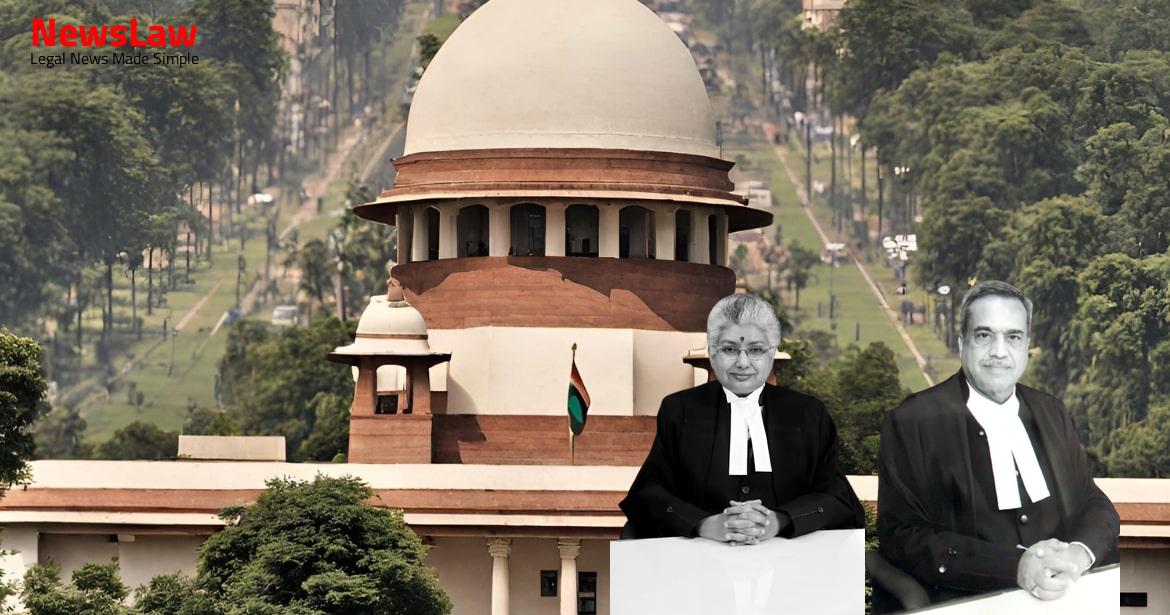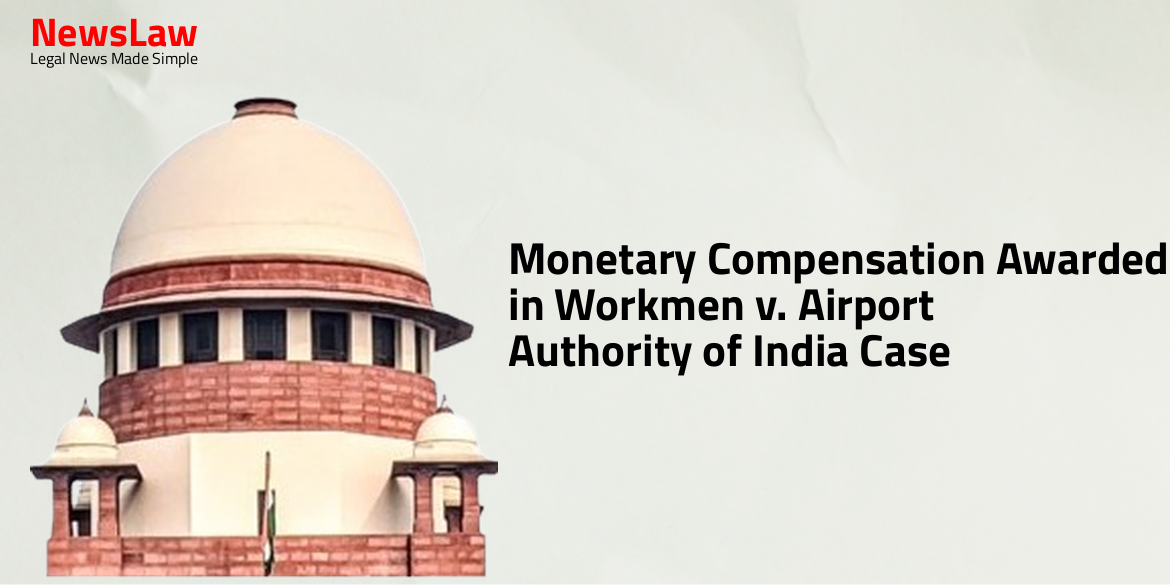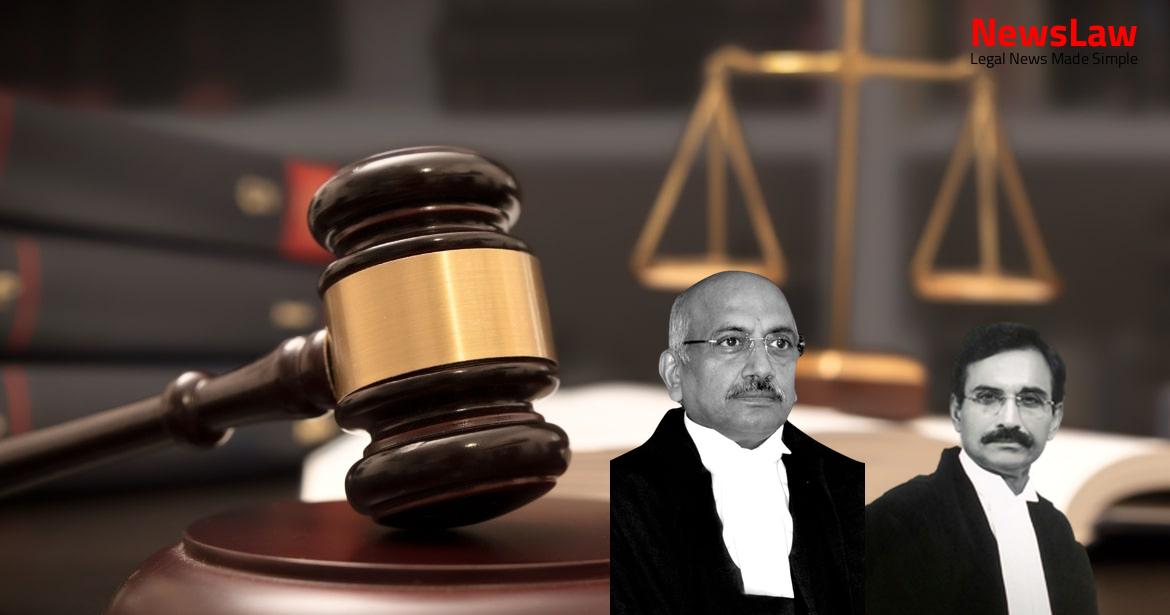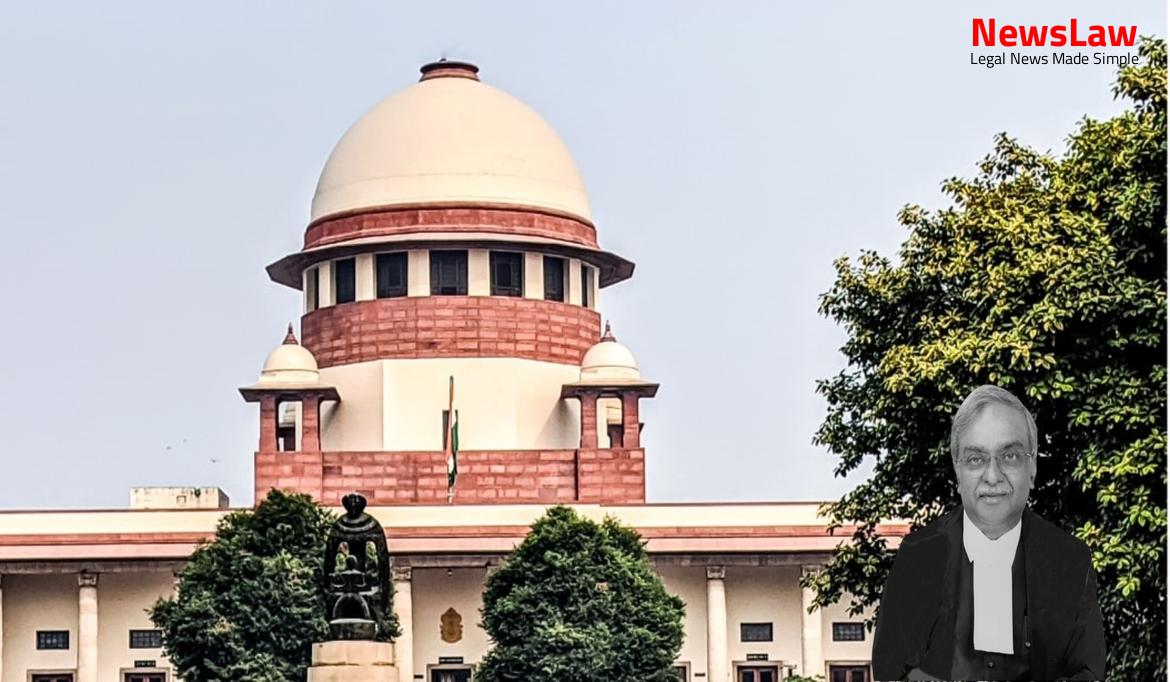The legal analysis of the High Court’s decision on the liability of a financier-in-possession of a transport vehicle under the Motor Vehicles Taxation Act raises crucial questions regarding tax obligations. The court’s interpretation of the relevant provisions highlights the obligations of owners and operators, emphasizing the distinctions for transport vehicles. This summary delves into the complexities of tax liability in such scenarios, shedding light on the implications for financiers and the criteria for tax refunds.
Facts
- The appellant is aggrieved by the judgment and order of the High Court which dismissed the writ petition filed by the appellant.
- The High Court held that the appellant, as a financier-in-possession of the transport vehicle, is liable to pay tax under the U.P. Motor Vehicles Taxation Act, 1997.
- The appellant, who was the original writ petitioner, is challenging this decision in the present appeal.
Also Read: Ruling on Circumstantial Evidence in Murder Case
Issue
- The question referred to the Full Bench was whether a Financier of a motor vehicle is liable to tax from the date of taking possession of the vehicle under hire-purchase, lease, or hypothecation agreements even if their name is not entered in the Certificate of Registration.
- The appellant, Mahindra and Mahindra Financial Services Limited, extended a loan for the purchase of a transport vehicle and is in possession of the vehicle due to default in loan payment.
- The court is tasked with determining the liability for tax in such situations as per the relevant provisions of the Acts and Rules mentioned in the question.
Also Read: Challenging Legal Presumptions in Negotiable Instrument Cases
Arguments
- The appellant, a financier-in-possession of a transport vehicle, took possession of the vehicle on default in loan payment.
- The appellant’s argument is that unless the transport vehicle is put to use, there is no liability to pay taxes under the Act, 1997.
- The taxes under the Act, 1997 are based on the ‘use’ of the transport vehicle.
- The appellant’s counsel emphasized the operation of the vehicle, specifically a transport vehicle, as per the provisions of the Act.
- The appellant is challenging the judgment holding them liable to pay taxes as a financier-in-possession of the transport vehicle.
- The State argues that under the Act, 1997, every “owner” and “operator” are liable to pay tax leviable under Section 4.
- The financier, after taking possession of the transport vehicle, becomes the “owner” under Section 2(h) of the Act, 1997.
- The State contends that the financier-in-possession of the transport vehicle is liable to pay the tax leviable under Section 4 of the Act, 1997.
- In the case of motor vehicles other than a transport vehicle, one-time tax is required to be paid at the time of registration of the vehicle.
- For transport vehicles, operators/owners are required to pay the tax at uniform intervals of time as per law.
- Both the “owner” and “operator” are jointly and severally liable for tax payments as per Section 9(3) read with Section 20(3).
- Arrears prior to the financier taking possession are primarily the liability of the owner or operator, but can be recovered from the financier as per Section 20(2).
- The charging section of the Act, 1997 is Section 4, according to the State’s argument.
- The State relies on the decision in Jagir Singh and Ors. Vs. State of Bihar and Ors., and a decision of the Gujarat High Court to support the argument that the financier-in-possession can be considered the “owner” and is liable to pay the tax in advance.
- The only remedy for the financier-in-possession is to claim a refund if the vehicle is not used; otherwise, they are liable to pay the tax dues.
Also Read: Legal Analysis Critique in High Court’s Quashing Order
Analysis
- According to the Gujarat High Court in the case of Abdul Samad Abdul Hamid Shaikh, if the vehicle is repossessed by the financier, the financier can avoid tax liability by submitting an application for non-use of the vehicle.
- If the vehicle is repossessed by the financier and no application for non-use is submitted, the liability to pay tax continues.
- The High Court ruled against the appellant-financeur, stating that possession of the vehicle as a financier makes them liable to pay tax under the Act, 1997.
- The appellant took possession of the vehicle in question after default in loan payment.
- Before seeking a refund or exemption from tax, the operator/owner must fulfill all conditions as mentioned in the Act.
- The documents required for exemption from tax may not always be with the financier, who is then liable to pay the tax in advance before using the vehicle.
- Tax must be paid in advance before using the transport vehicle, not after.
- The provision for surrendering documents and not paying tax under certain conditions does not nullify the requirement to pay tax in advance under Section 9.
- If the vehicle is not used after tax payment, a refund can be claimed subject to fulfilling Section 12 requirements.
- The liability to pay tax remains with the owner/operator unless specific conditions for exemption are met.
- In cases where documents are not acquired from the registered owner, the financier must follow the procedure to obtain fresh registration.
- Refunds can only be claimed if tax is first paid and then the vehicle remains unused, subject to Section 12 conditions.
- The core issue is the tax liability of the financier-in-possession under the Act.
- Section 4 of the Motor Vehicles Act states that tax must be paid in advance by the registered owner or person having possession of the vehicle.
- A financier in possession of a vehicle under a hire-purchase agreement is considered an ‘owner’ under the Act.
- If a vehicle is not used for a month or more after tax payment, the owner may apply for a refund following the procedures in Section 12.
- Tax payable under Section 4(2-A) must be paid in advance for each calendar month.
- Arrears of tax are recoverable as arrears of land revenue and constitute a first charge on the vehicle.
- The Act allows for refund of tax if a vehicle has not been used for a continuous period.
- The judgment and order passed by the Full Bench of the High Court should not be interfered with under the present circumstances.
Decision
- The appeal has been dismissed.
- There shall be no order as to costs.
Case Title: MAHINDRA AND MAHINDRA FINANCIAL SERVICES LTD. Vs. THE STATE OF UTTAR PRADESH (2022 INSC 221)
Case Number: C.A. No.-001217-001217 / 2022



